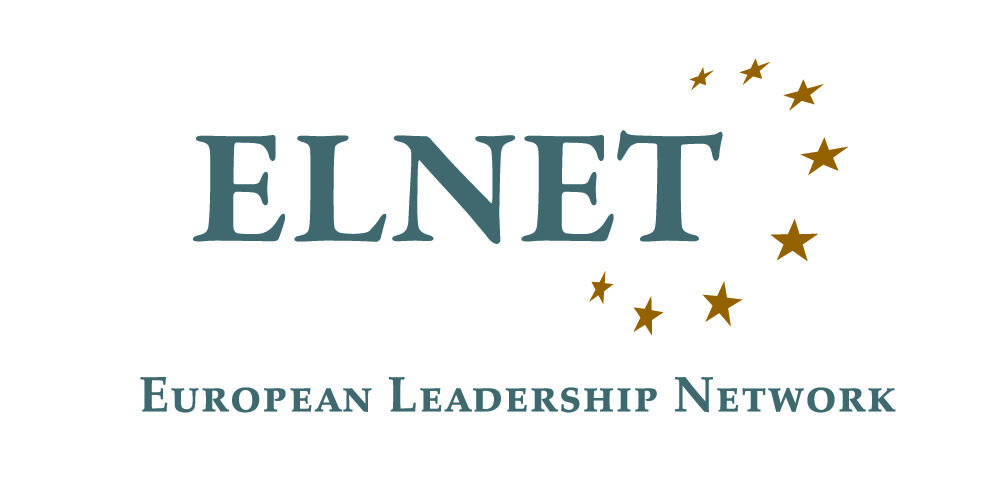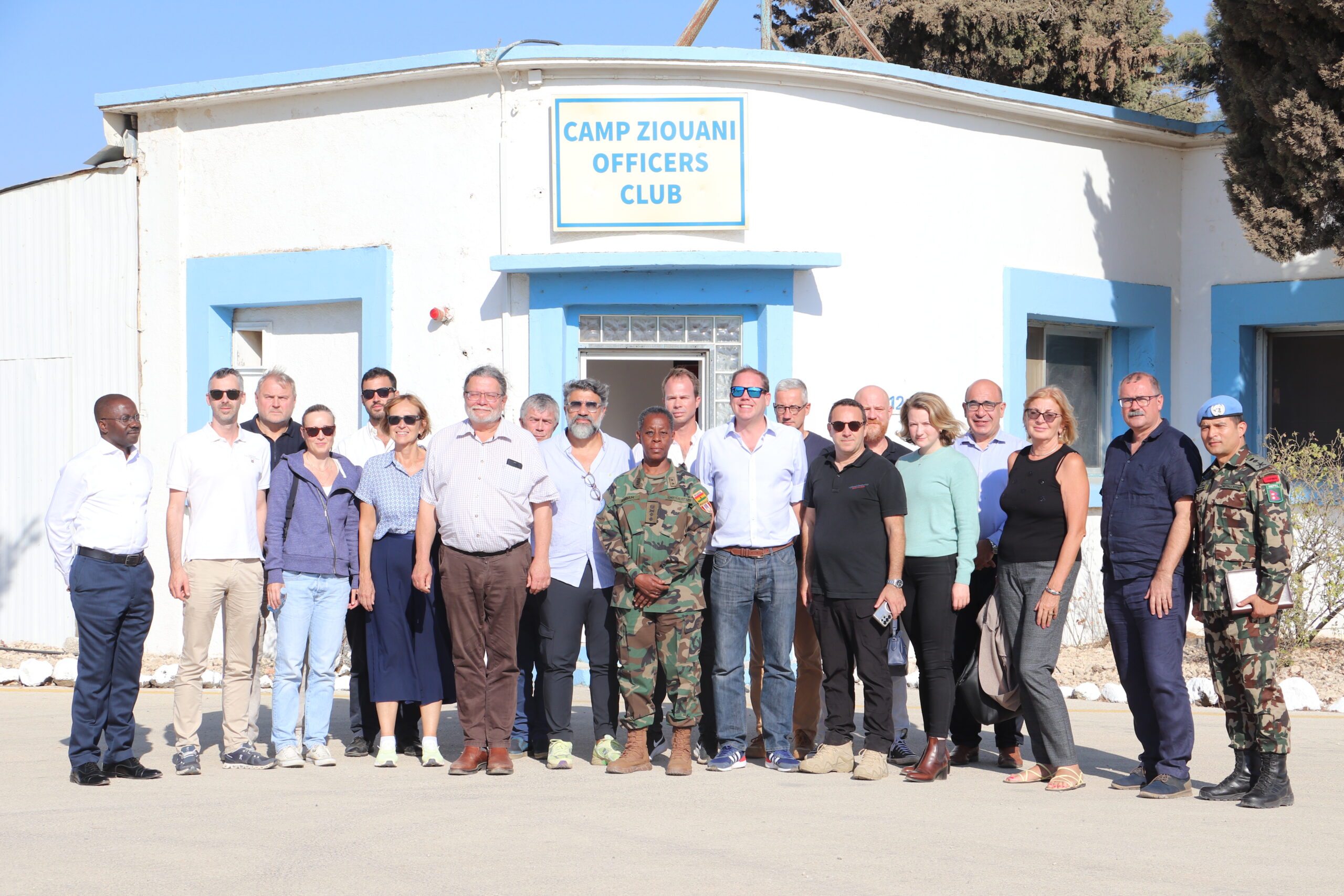Between September 14 and 17, 2025, ELNET hosted a high-level Joint Defense Delegation to Israel, composed of 11 European parliamentarians and defense experts from EU institutions, UK, Czech Republic, Estonia, Lithuania, Austria, Greece and Latvia. Among the participants were MEP Alexandr Vondra, former Czech Minister of Defense and Deputy Prime Minister and MEP Riho Terras, former Commander of the Estonian Defense Forces. The delegation gathered members of parliament, defense committee representatives, and senior policy officials committed to deepening dialogue and cooperation on European-Israeli security challenges.
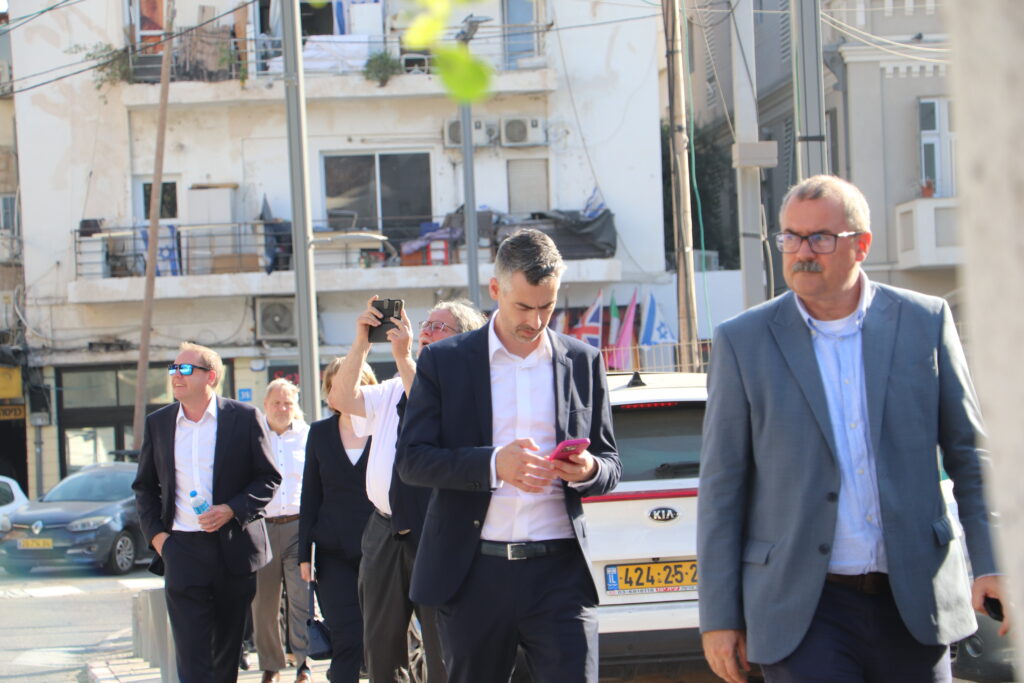
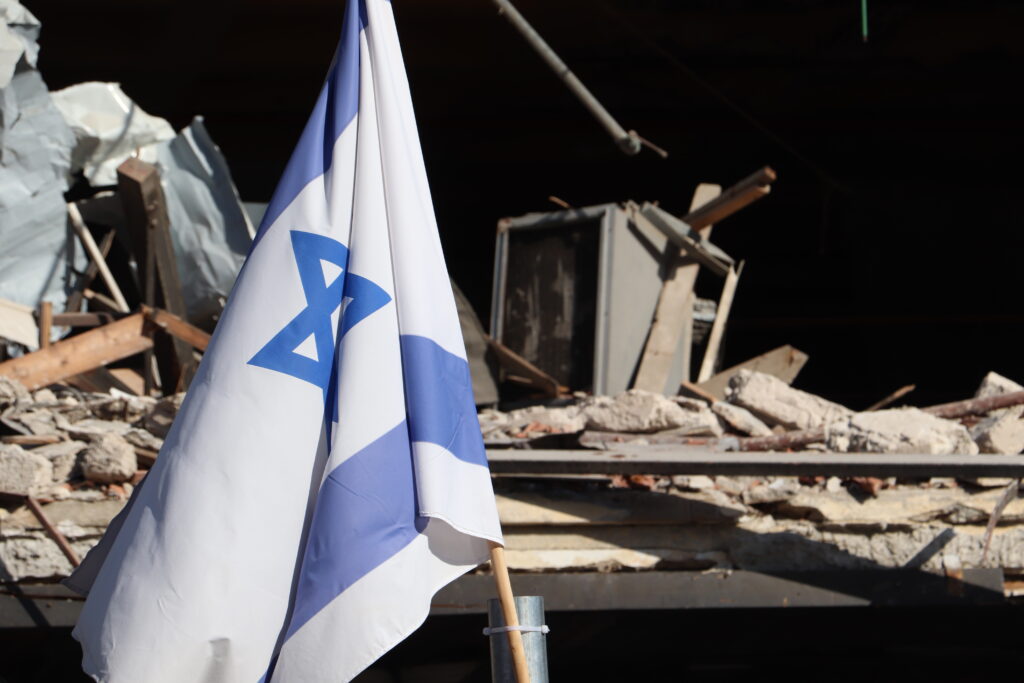
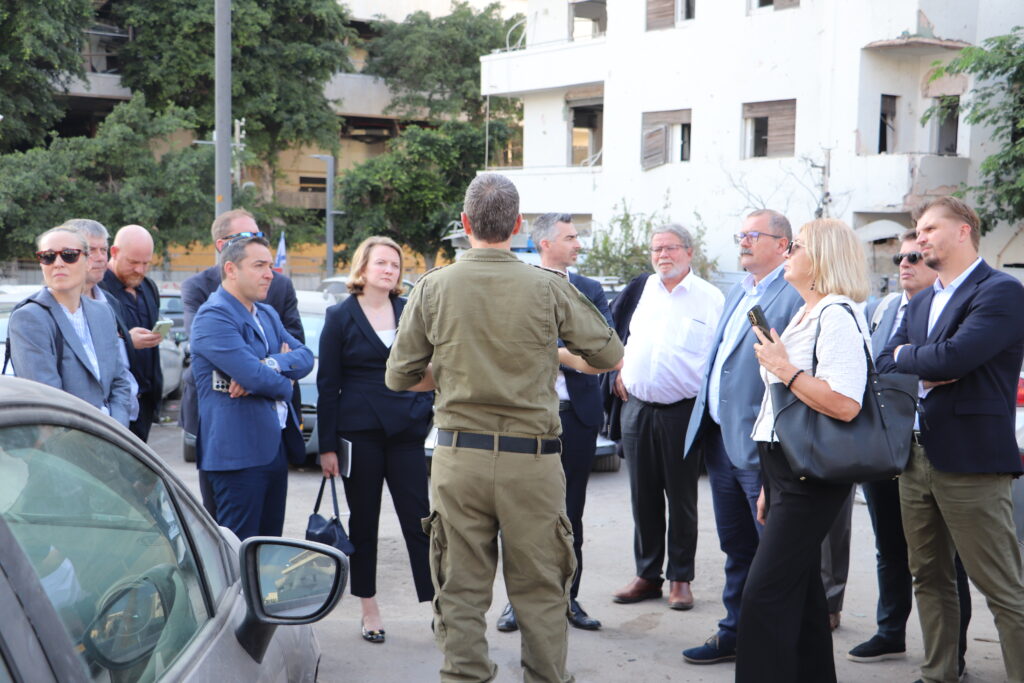
In Tel Aviv
This delegation was of particular strategic importance in light of the ongoing regional instability and the growing international debate surrounding Israel’s military operations and security policies. At a time when questions about deterrence and international law dominate discussions in European institutions, it was important to provide participants with a comprehensive and balanced understanding of Israel’s defense challenges. Through direct engagement with senior Israeli officials, field visits, and exposure to a broad range of perspectives across the political, legal, and technological spectrum, the program offered an unfiltered insight into the realities shaping Israel’s security environment. The delegation allowed parliamentarians and defense experts to engage with factual, first-hand information—countering prevalent misconceptions and contributing to a more informed and nuanced European discourse on Israel’s defense posture and regional role.
The program opened with a dinner in Tel Aviv with MK Yuli Edelstein, former Chairman of the Knesset Foreign Affairs and Defense Committee, who offered an in-depth political and security overview in light of October 7 and the ongoing conflicts on Israel’s borders. Edelstein underlined Israel’s urgent need for European partners who understand the complexity of its strategic environment, while delegates expressed solidarity and their determination to carry these lessons back to European institutions
On the first full day, the group visited the Ministry of Defense in Tel Aviv, where they received a series of high-level briefings. Yoni Keidar, Head of the Europe and NATO Division, opened with a comprehensive overview of Israel’s relations with its immediate neighborhood — Iran, Lebanon, Syria, and Turkey. He also addressed Israel’s operation against Hamas leaders in Qatar, carried out only days before the visit. His professional and captivating analysis covered Hamas’ regional entrenchment, the implications of European recognition of a Palestinian state, and the broader strategic balance. The discussion further extended to Europe’s own security vulnerabilities, particularly in light of Russian drones that had crossed into Polish airspace earlier that week, prompting an exchange on Israel’s role in the Ukraine-Russia war.
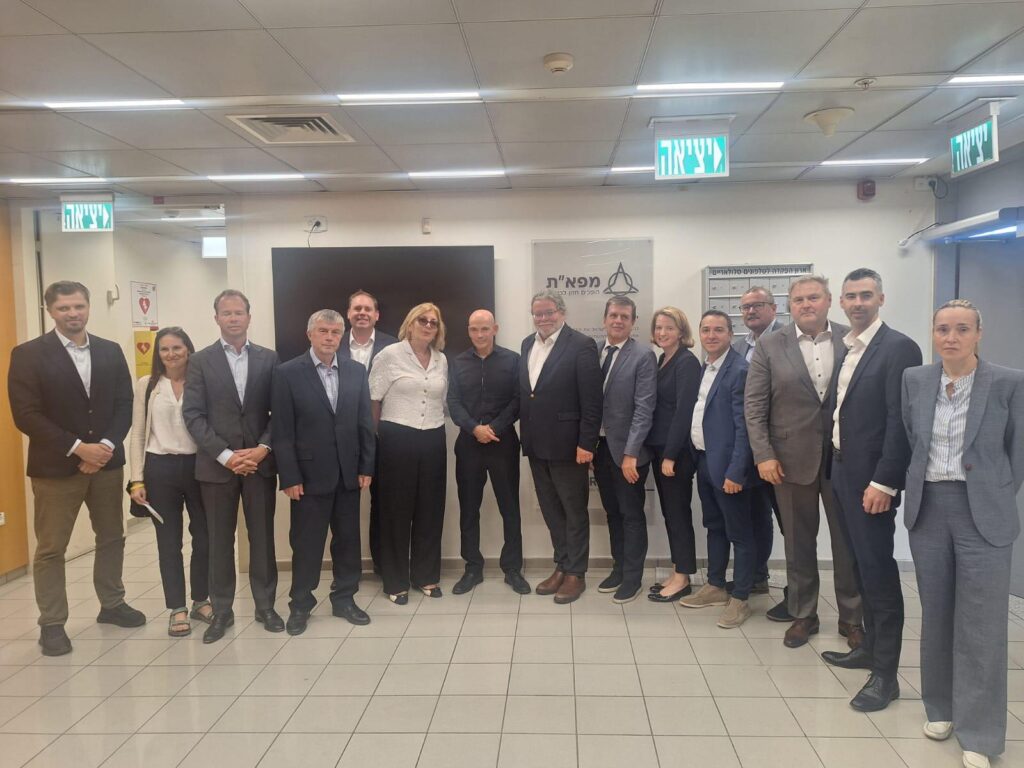
Colonel Nadav Minkovsky, from the IDF’s International Law Division, followed with a detailed lecture on Israel’s compliance with international law in combat. He presented concrete examples of the decision-making procedures guiding target selection in Gaza, the humanitarian assistance mechanisms in place, and the multiple investigative frameworks for incidents arising during operations. Colonel Minkovsky emphasized that every IDF strike and maneuver is subject to judicial oversight by the Military Advocate General’s Corps and requires explicit authorization before execution. His remarks triggered a substantive debate among participants regarding the feasibility of waging war while adhering strictly to the laws of armed conflict.
The session concluded with Brigadier General (res.) Daniel Gold, Head of the Ministry of Defense’s Directorate of Defense Research and Development (DDR&D) and architect of the Iron Dome system. Brig. Gen. (res.) Gold provided an in-depth overview of Israel’s multi-layered missile defense architecture, including interception rates, operational case studies, and the diverse systems employed against rockets, drones, and ballistic missiles. He further highlighted Israel’s leadership in radar advancements and cost-effective laser technologies, alongside the integration of domestic startups into the defense innovation ecosystem — exemplified by the Innofense Accelerator. His insights strongly resonated with the Eastern European participants, many of whom face increasing concerns regarding their own defense vis-à-vis Russia.
During lunch, the delegation was addressed by Col. (res.) Nissan Ben Ruby, a senior IDF cyber security officer, who provided an overview of Israel’s cyber defense and offense challenges. He highlighted the critical importance of the cyber domain, citing specific examples such as Iran’s attempted cyberattacks on Israeli hospitals. His remarks underscored the constant threat landscape and the high stakes of safeguarding both civilian and military infrastructures.
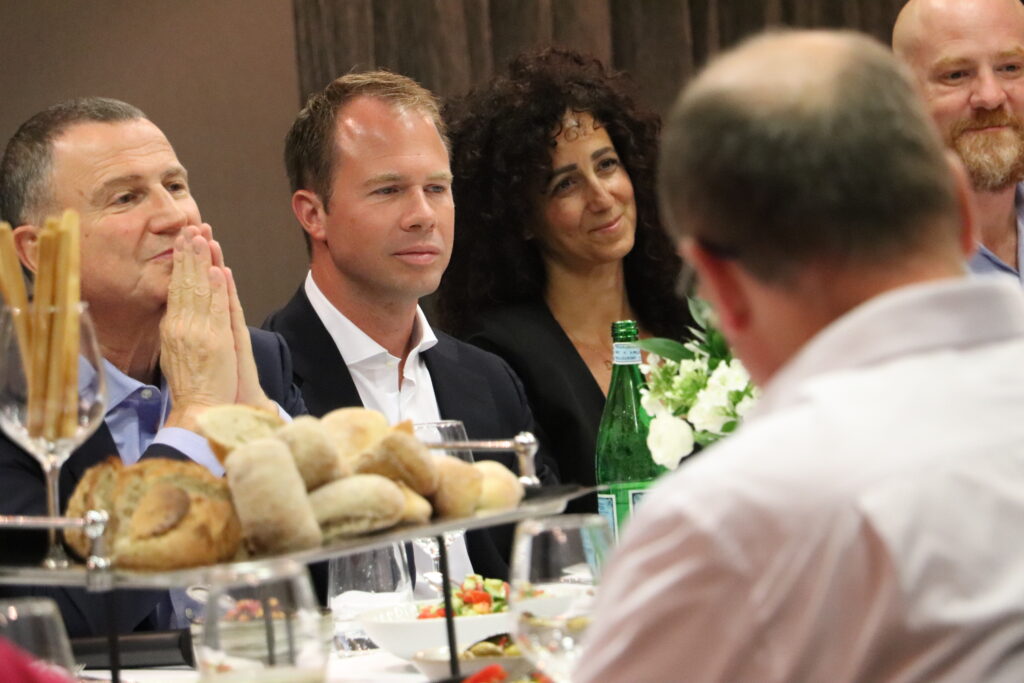
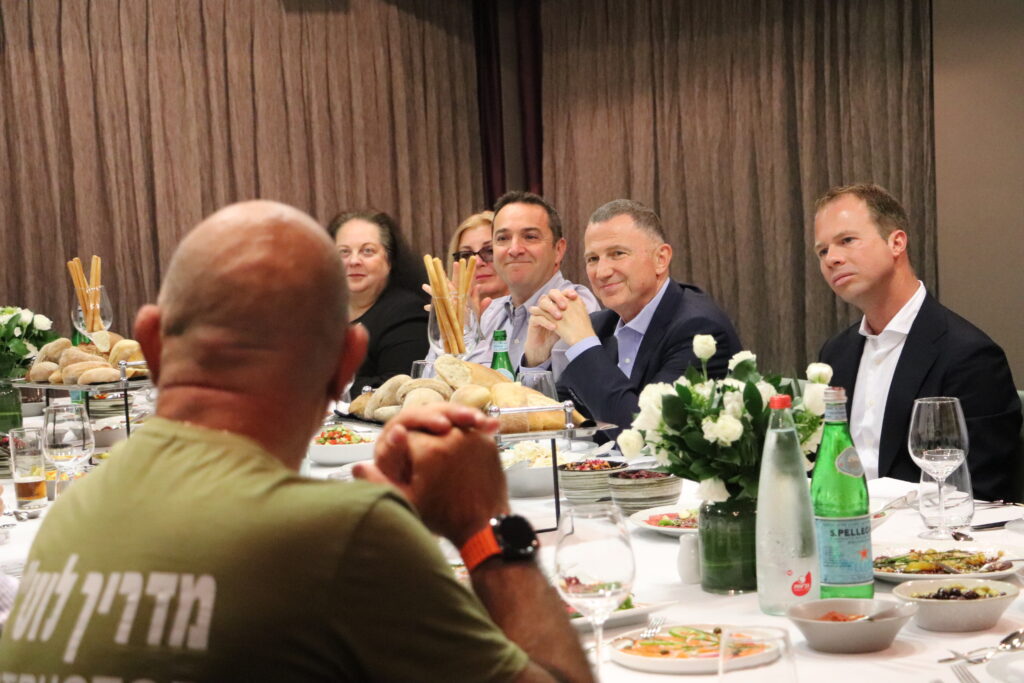
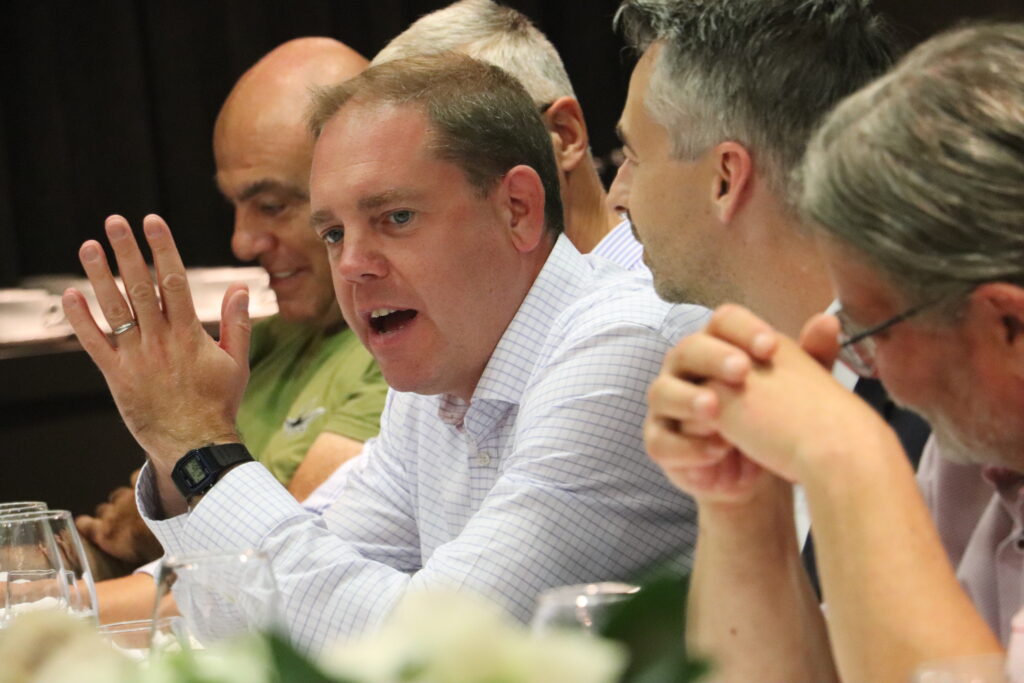
After lunch, the group returned to the Ministry of Defense for a session with Brigadier General Elad Goren, Head of the Humanitarian-Civilian Division at COGAT (Coordinator of Government Activities in the Territories). Brig. Gen. Goren delivered a comprehensive overview of Israel’s efforts to facilitate humanitarian aid into the Gaza Strip. He shared the difficulties encountered, particularly the limited cooperation from the small number of UN officials operating on the ground, and the ongoing challenge of Hamas propaganda portraying a fabricated famine. Backed by figures and documentation from multiple sources, Brig. Gen. Goren demonstrated that Israel has consistently enabled humanitarian aid while facing obstruction from international agencies. He even cited examples of the UN demanding that Israeli convoys be escorted by Hamas officials, highlighting the complex and often frustrating dynamics. The delegation was deeply engaged, noting the striking parallels between Hamas disinformation campaigns and their echoes in European public discourse.
Following this session, the delegation visited a site in Tel Aviv recently struck by an Iranian missile. On location, a Home Front Command officer briefed them on the circumstances of the attack, the extent of the damage, and the protocols activated in such emergencies. The delegation was shocked by the sheer force of the impact, which had devastated the surrounding area. The officer explained how the Home Front Command responds to such incidents, including civilian alert systems, rapid emergency response, and support mechanisms that help minimize casualties — as demonstrated during the recent twelve-day war with Iran. Seeing firsthand the consequences of a missile strike left a strong impression of both the resilience and the vulnerabilities of Israel’s defense system when interception fails.
The day concluded with a dinner hosted by the Fraiberger Family, where the delegation was joined by Deputy Minister of Foreign Affairs Sharren Haskel. Deputy Minister Haskel spoke about the importance of close cooperation between Israel and European partners, particularly in an era where Palestinian propaganda is gaining strength across the continent. She addressed the growing challenge posed by European countries implementing various forms of boycotts against Israel and stressed the strategic need for unified transatlantic collaboration in confronting these pressures.
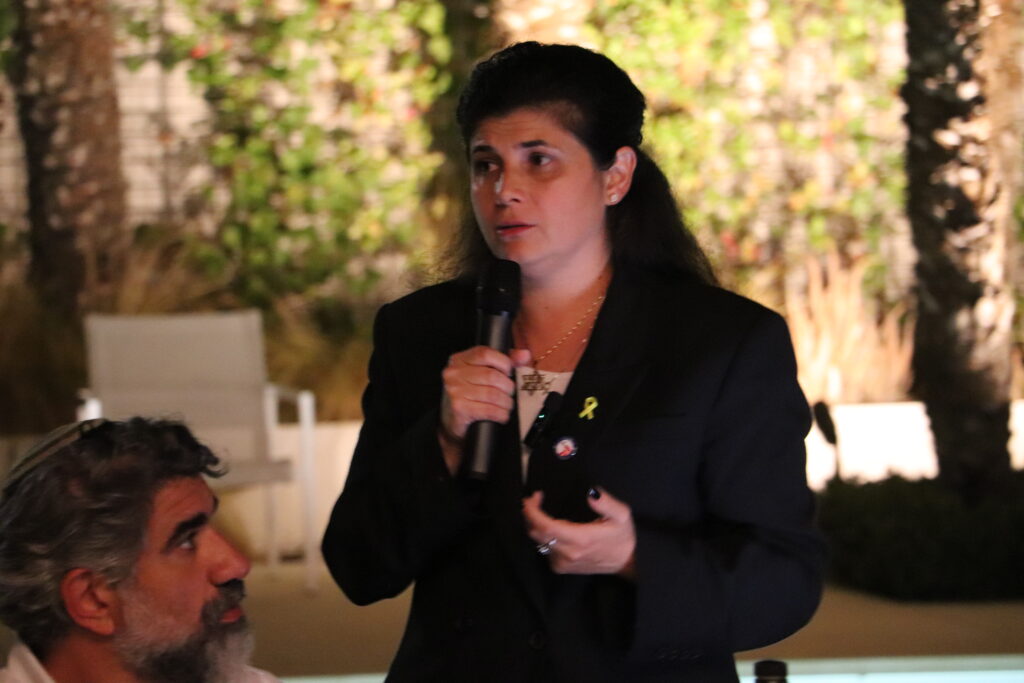
Northern Israel
The second day of the program was dedicated to Israel’s northern front. The delegation flew by helicopter to the Rosh Pina landing site, receiving on the way a unique aerial perspective of Israel’s geography. From above, they could clearly appreciate the challenges of Israel’s narrow land corridor between the Mediterranean Sea and the West Bank, while also enjoying the view of iconic sites such as the Sea of Galilee.
Upon arrival in the North, the delegation was welcomed at the IDF Northern Command headquarters in Safed, where they received a comprehensive briefing from Brigadier General Ofer Shafran, Chief of Operations of the Northern Command. Brig. Gen. Shafran provided a detailed overview of Israel’s ongoing confrontation with Hezbollah. He explained how Israel succeeded in severely degrading Hezbollah’s operational capacity, curtailing its strategic ties with Iran, and carrying out the targeted elimination of Hassan Nasrallah. His professional and precise briefing left the delegation deeply impressed by Israel’s effectiveness on the northern front.
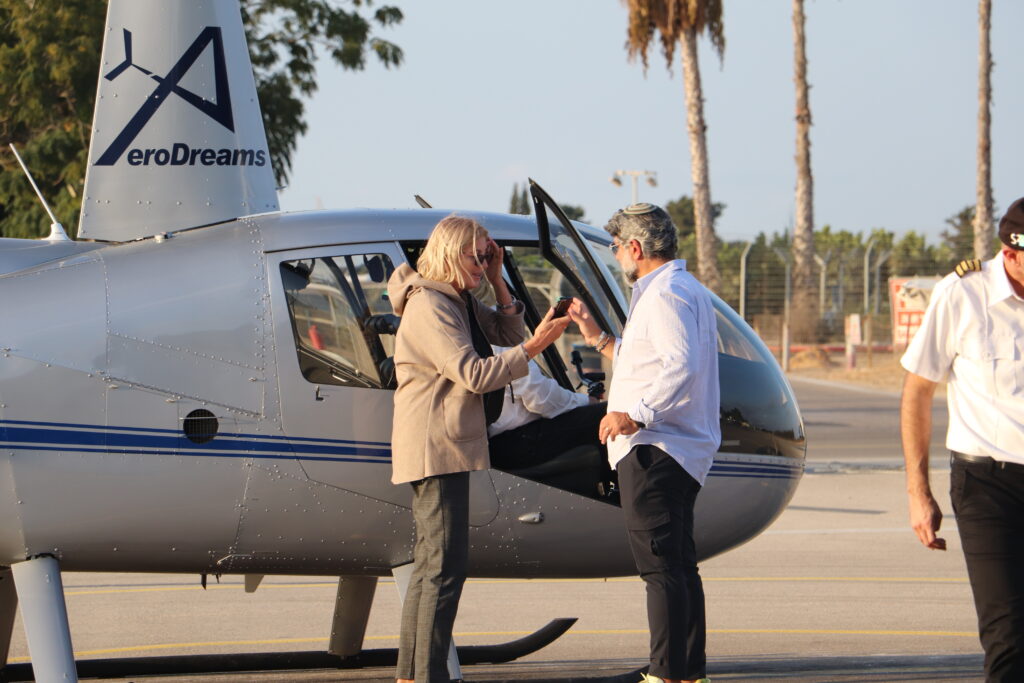
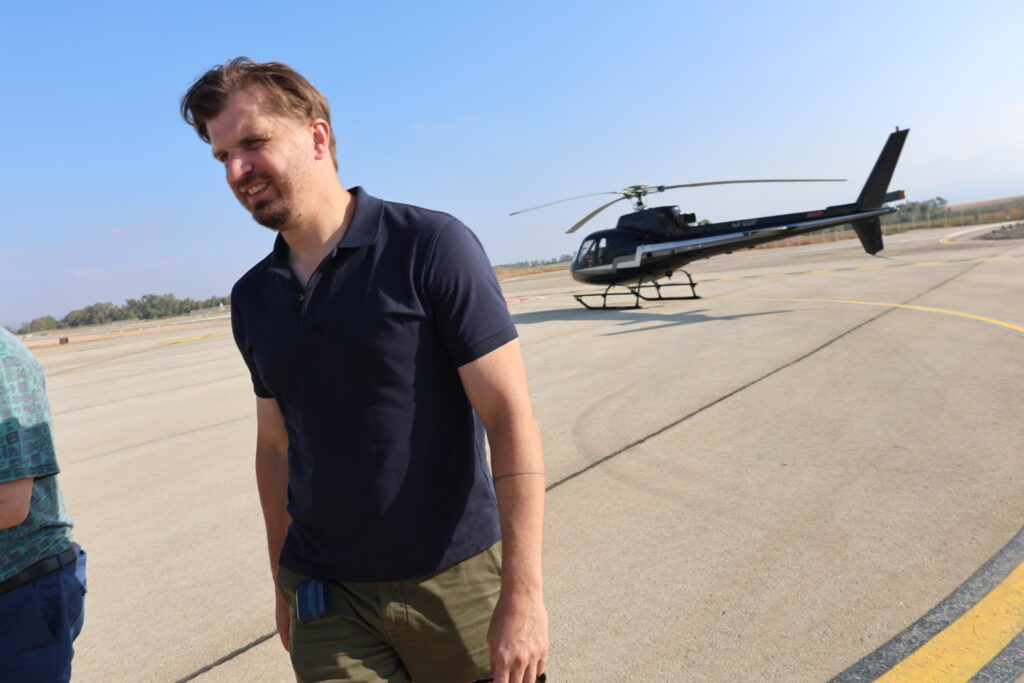
The visit continued at the Mitzpeh Benaya lookout point, overlooking southern Lebanon. There, Lt. Colonel Eyal Dror provided an on-site briefing on the situation along the Israel–Lebanon border. He contrasted the flourishing agricultural communities on the Israeli side with the Lebanese villages across the fence, many of which are controlled and exploited by Hezbollah, stunting civilian development and entrenching terror infrastructure.
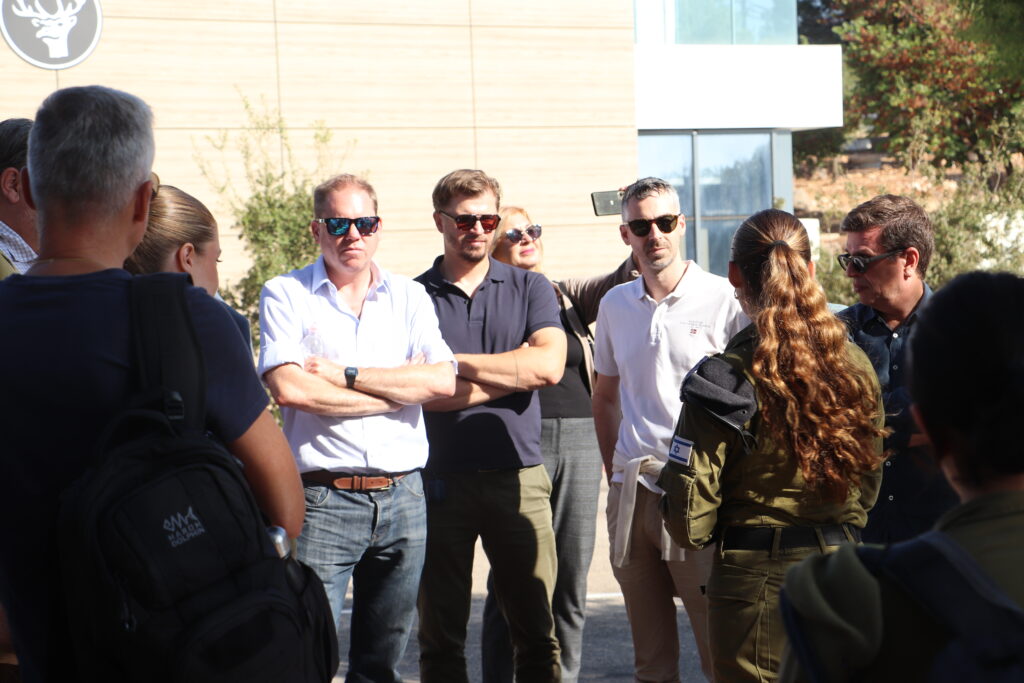
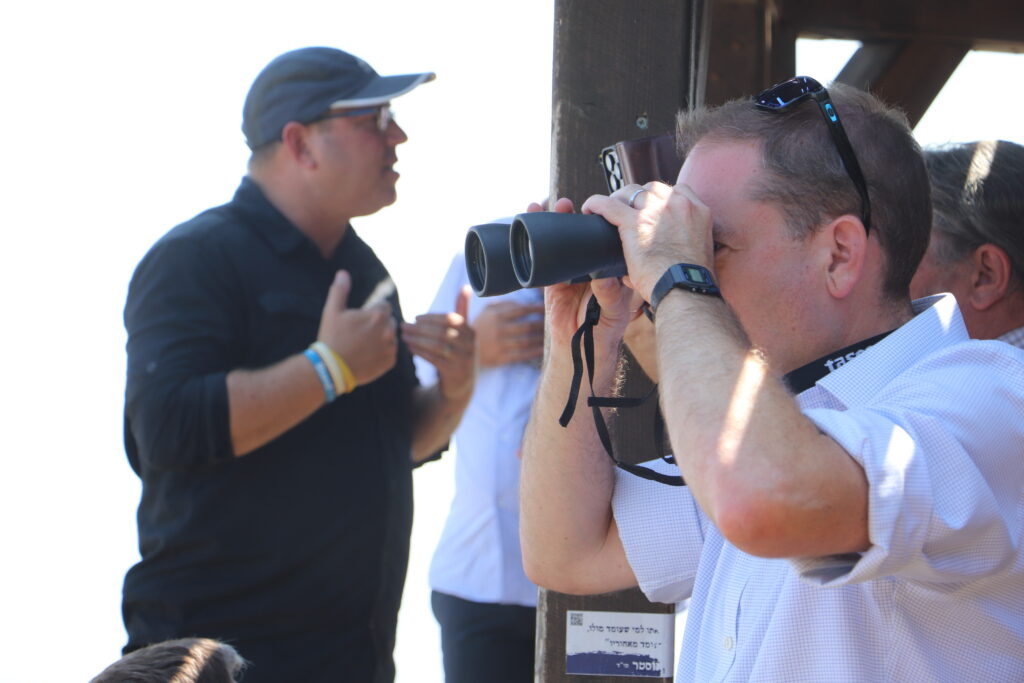
The group then proceeded to the Mount Bental lookout point, with a panoramic view of the Syrian border. Lt. Col. Dror offered insights into Israel’s humanitarian assistance during the Syrian civil war, including extensive medical treatment provided to wounded Syrians. He emphasized the significant impact of these efforts on Israel’s image among border communities, where goodwill toward Israel had grown markedly as a result. He also addressed the emerging challenges following the consolidation of the new Syrian regime, particularly the plight of Druze communities exposed to massacres and persecution.
The group then proceeded to the UNDOF Zivani Camp, where they were welcomed by the United Nations Disengagement Observer Force. The delegation received a briefing from Major General Anita Asmah, Head of Mission and Force Commander, who outlined the mandate and activities of UNDOF in maintaining the buffer zone between Israel and Syria. While the presentation provided an overview of the mission’s objectives, the delegation noted with some concern the limited effectiveness of UNDOF forces on the ground and their heavy reliance on IDF protection for their own security.
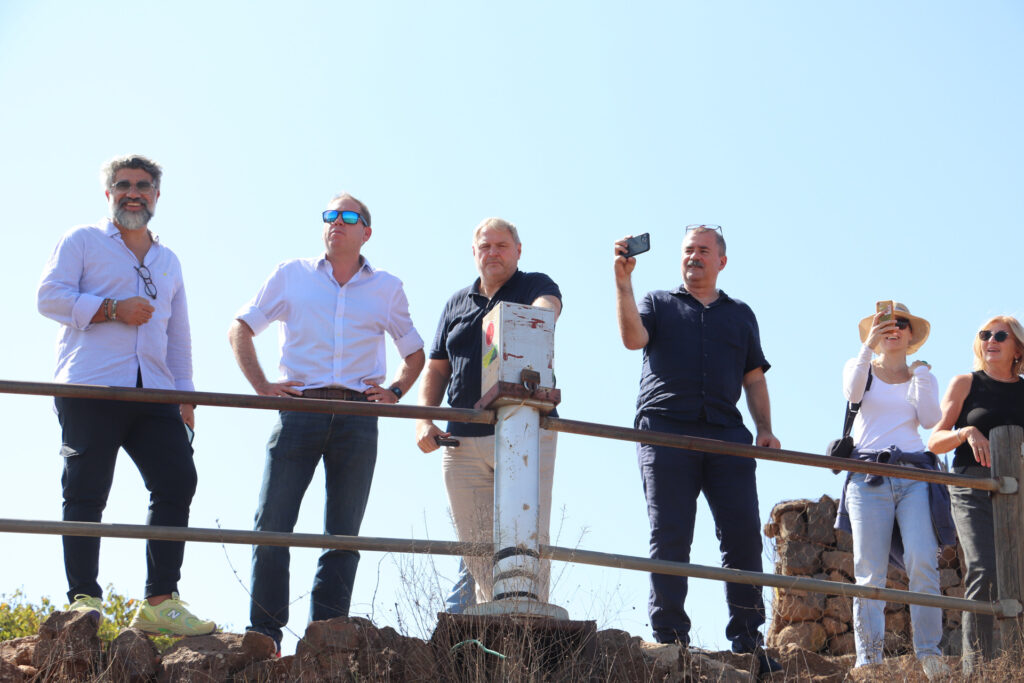
This was followed by a field tour at the Quneitra border crossing, guided by Major Yuval Halavyaon, an IDF intelligence officer responsible for coordination between the IDF and UNDOF along the border. Maj. Halavyaon offered a more optimistic perspective on UNDOF’s role, highlighting areas of practical cooperation and praising the mission’s assistance to the IDF in addressing the unique challenges of managing a border with an unstable regime. His remarks balanced the earlier impressions and provided the delegation with a broader understanding of the complexities of the mission.
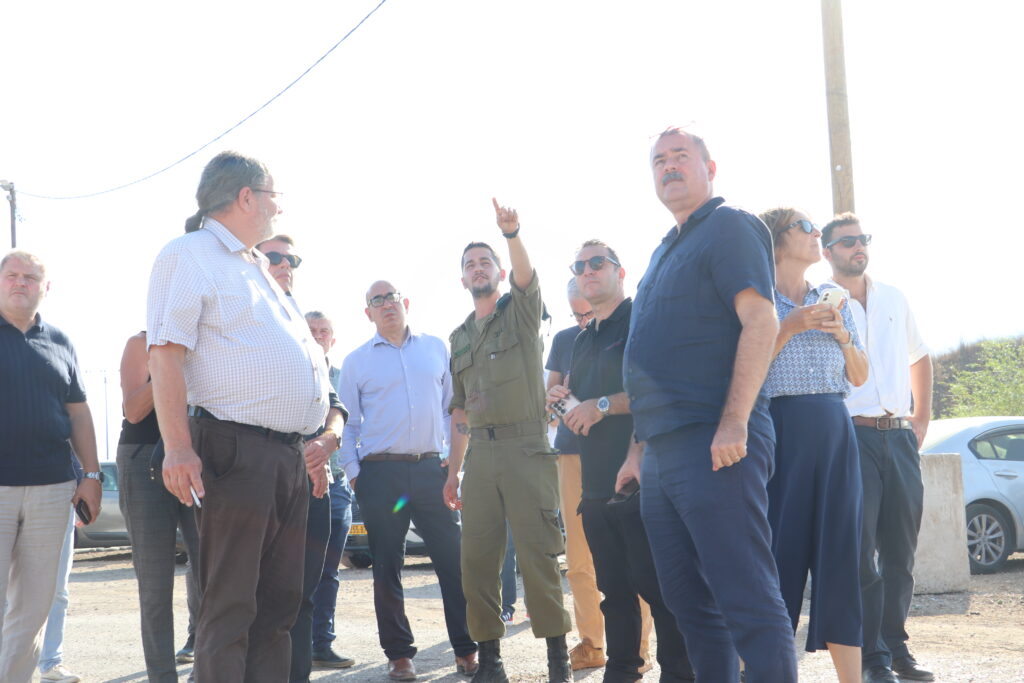

The delegation then flew back to Tel Aviv, where they concluded the day with a dinner meeting with Major General (res.) Yaakov Amidror, Senior Fellow at the Jerusalem Institute for Strategy and Security and former National Security Advisor to the Prime Minister. Maj. Gen. (res.) Amidror delivered an in-depth and highly precise overview of Israel’s strategic situation, including the ongoing war in Gaza and the broader spectrum of regional conflicts and operations in which Israel is engaged.
The delegation was particularly captivated by his vast knowledge and candid assessments. Discussion during the dinner was lively, with members repeatedly pressing for Israel’s perspective and policy regarding the Ukraine-Russia war, reflecting the strong interest of European participants in this dimension of Israel’s foreign and security posture.
On the final day, the delegation visited Israel Aerospace Industries (IAI), where they were introduced to cutting-edge defense technologies, missile defense systems, and cyber capabilities. The visit highlighted opportunities for greater European-Israeli cooperation in defense innovation and joint industrial ventures.
Throughout this intensive delegation, the participants gained valuable exposure to a wide spectrum of perspectives within Israel’s defense, political, and civil landscape. By engaging directly with senior officials, military commanders, researchers, and representatives of civil society, the delegation was able to witness firsthand how Israel’s security realities intersect with everyday life and strategic decision-making. We hope that these insights will contribute to a more nuanced understanding of Israel’s complex regional environment and will encourage participants to convey its multifaceted challenges and achievements in a more informed and balanced manner within European policy and public discourse.
